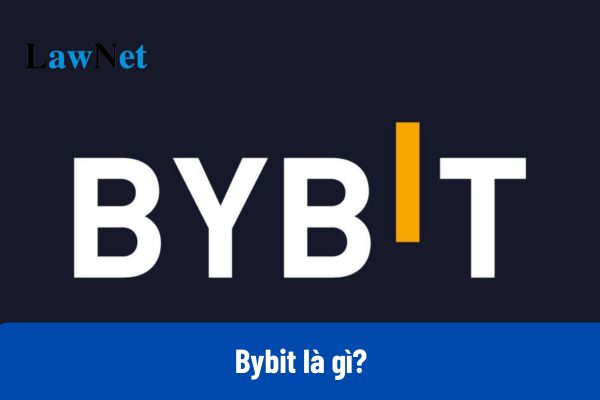What is Bybit? What are the main features of Bybit? Is income from Bybit subject to personal income tax in Vietnam?
What is Bybit? What are the main features of Bybit?
(1) What is Bybit?
Bybit is a cryptocurrency exchange established in March 2018, headquartered in Dubai, UAE. The exchange focuses on derivative products in the cryptocurrency sector, offering services such as futures trading, perpetual contracts, and options with leverage up to 100 times. Bybit currently lists over 800 types of cryptocurrencies and provides a variety of trading forms.
Bybit focuses on derivative products in the crypto market, lists over 800 types of cryptocurrencies, and offers various trading forms, including futures contracts, perpetual contracts, options, etc., with a maximum leverage of 100x.
(2) Main features of Bybit:
Below are the main features of Bybit:
- Derivatives Trading: Supports perpetual contracts and futures contracts with leverage up to 100x.
- Spot Trading: Offers numerous cryptocurrency trading pairs such as BTC/USDT, ETH/USDT, and various altcoins.
- Earn & Staking: Users can deposit cryptocurrencies to earn interest through savings and staking products.
- Launchpad & Launchpool: A platform that helps investors participate in new cryptocurrency projects.
- Copy Trading: Allows users to copy the trades of professional traders.
- BOT & API Trading: Supports automated trading tools through bots and APIs.

What is Bybit? What are the main features of Bybit? (Image from the Internet)
Is income from Bybit subject to personal income tax in Vietnam?
Currently, Vietnam does not have specific regulations on personal income tax (PIT) for income from cryptocurrency trading on Bybit or other international exchanges. However, there are several points to consider:
According to Article 3 of the Personal Income Tax Law 2007, individuals are obligated to pay taxes on 10 types of income listed. Simultaneously, Article 4 of the Personal Income Tax Law 2007 stipulates 14 types of income exempt from tax.
However, among these 24 types of income categories, there is no provision regarding income from investment activities, buying and selling virtual currencies, or virtual assets. As of now, cryptocurrencies have not been specifically regulated as goods or services under the law.
Additionally, according to Clause 1 Article 3 of Circular 111/2013/TT-BTC, income from production and business activities includes sectors such as goods, transportation, rentals, etc., but does not clearly specify whether income from virtual assets falls within the regulatory scope.
In this case, activities related to virtual assets do not appear on the list of industries such as production, business, or asset rental.
Additionally, Official Dispatch 5747/NHNN-PC 2017 from the State Bank of Vietnam provides guidance as follows:
Based on the aforementioned regulations, virtual money in general, and Bitcoin and Litecoin in particular, are not considered currencies and are not lawful means of payment under Vietnamese law. The issuance, provision, and use of virtual currencies, including Bitcoin and Litecoin (as unauthorized means of payment), are prohibited acts. The penalties for these acts are stipulated in Decree 96/2014/ND-CP of the Government of Vietnam on administrative penalties in the field of currency and banking, and the Criminal Code 2015 (amended and supplemented). Furthermore, regarding investment in virtual currencies, the State Bank of Vietnam has repeatedly warned of the significant risks for investors.
Based on the evidence mentioned above, it is clear that cryptocurrencies or virtual currencies are not considered money and are not lawful means of payment according to Vietnamese law, making the trading of cryptocurrencies like Bybit illegal.
Thus, income from Bybit is not subject to PIT.
However, in practice, the primary goal of individuals and organizations when creating, trading, or investing in virtual assets is to gain profit. This might lead the State to consider adjusting tax policies in the future to manage and collect taxes on this type of asset.
What are regulations on location and methods for paying PIT in Vietnam?
According to Article 56 of the Tax Administration Law 2019, regulations on the location and methods for paying PIT are as follows:
- Taxpayers pay taxes to the state budget under the following regulations:
+ At the State Treasury;
+ At the tax administration agency where the tax declaration dossier is received;
+ Through organizations authorized by the tax administration agency to collect taxes;
+ Through commercial banks, other credit institutions, and service organizations as prescribed by law.
- The State Treasury, commercial banks, other credit institutions, and service organizations as prescribed by law are responsible for providing locations, facilities, officials, and staff to ensure tax payments are made promptly into the state budget for taxpayers.
- Agencies and organizations that receive tax payments or withhold taxes must issue tax payment receipts to taxpayers.
- Within 8 working hours from the time of collecting tax payments from the taxpayer, agencies or organizations receiving taxes must transfer the money to the state budget. In the case of collecting taxes in cash in remote areas, islands, or areas with difficult access, the timeline for transferring tax payments into the state budget is as prescribed by the Minister of Finance.

